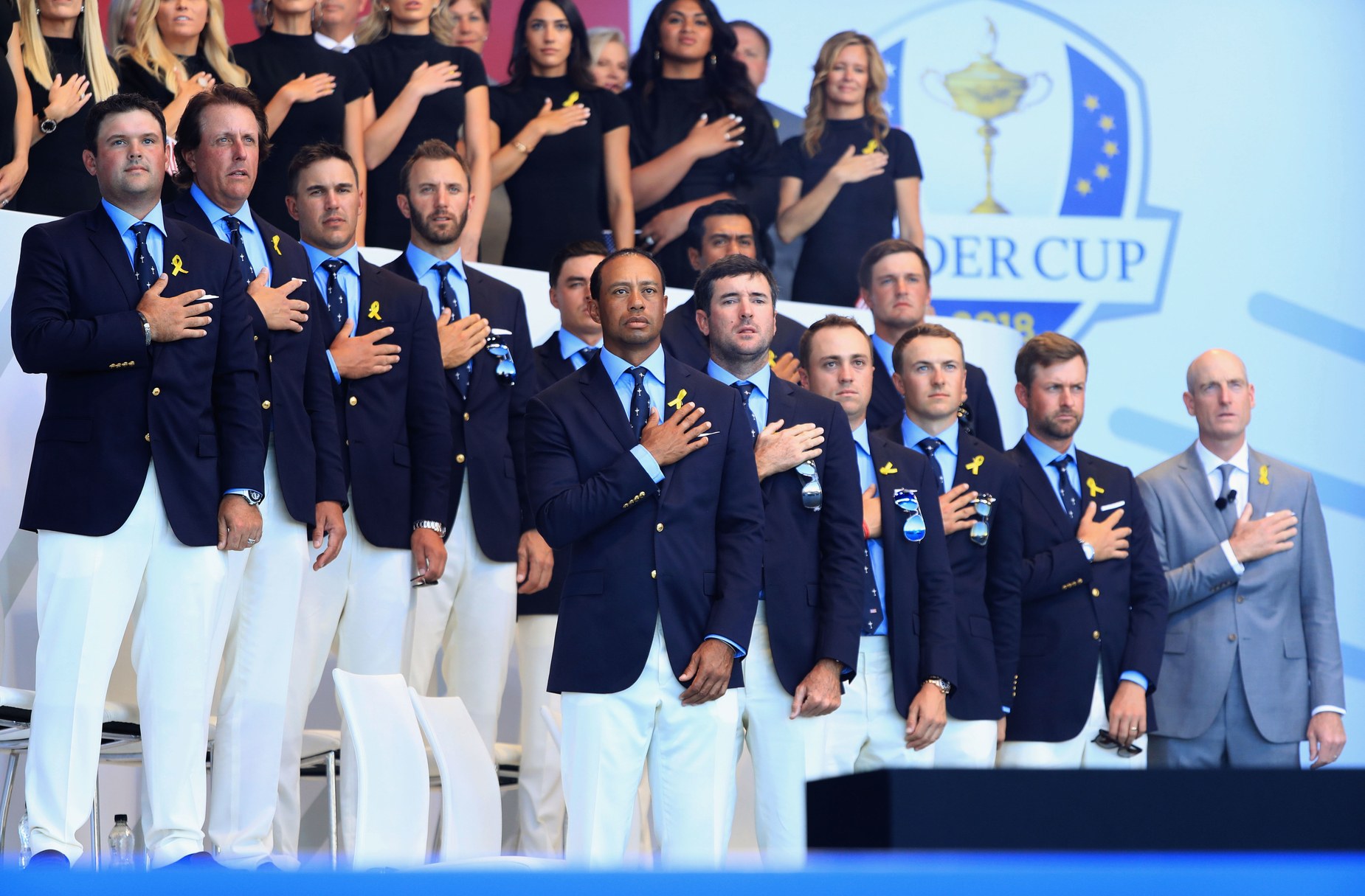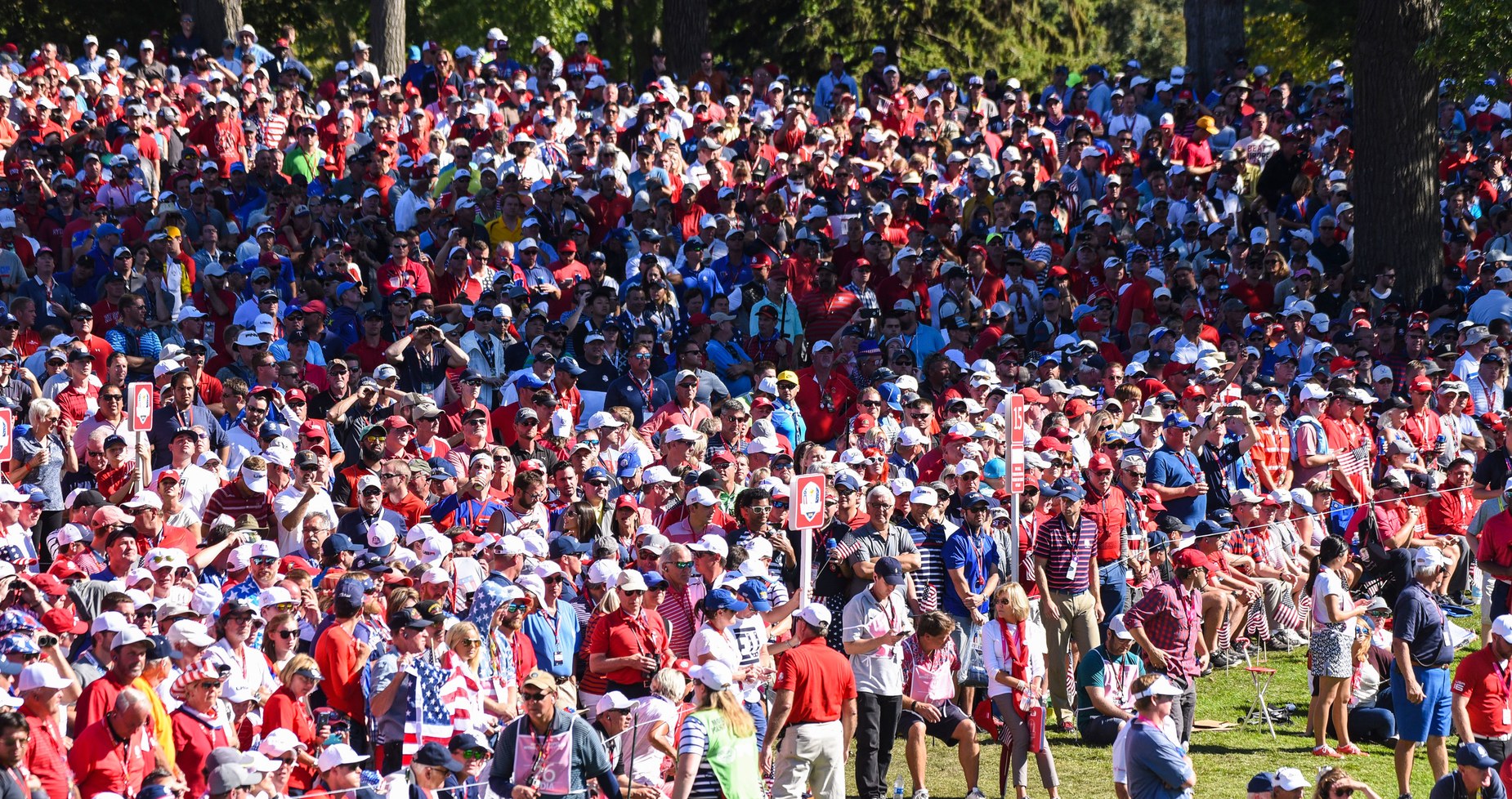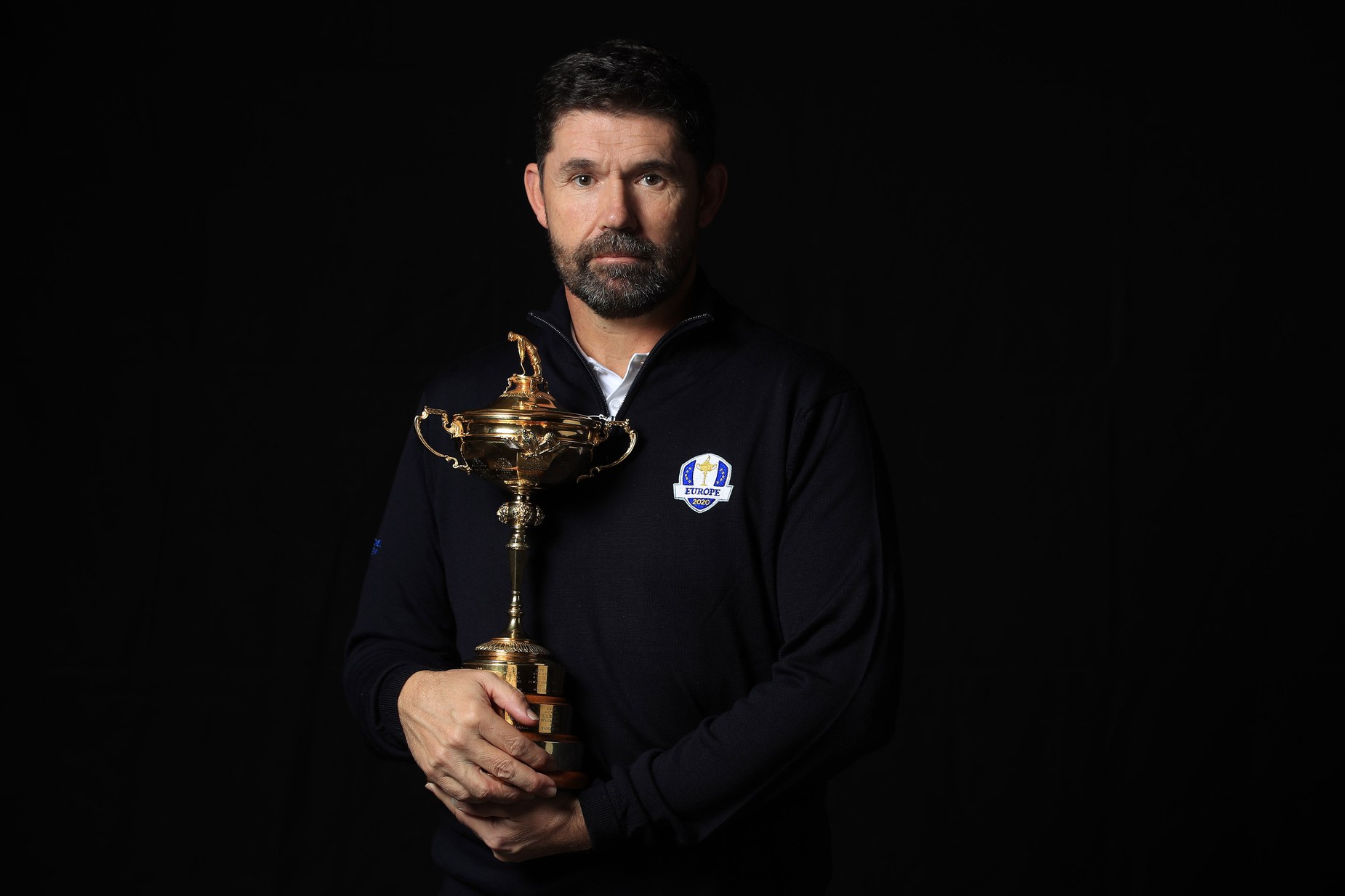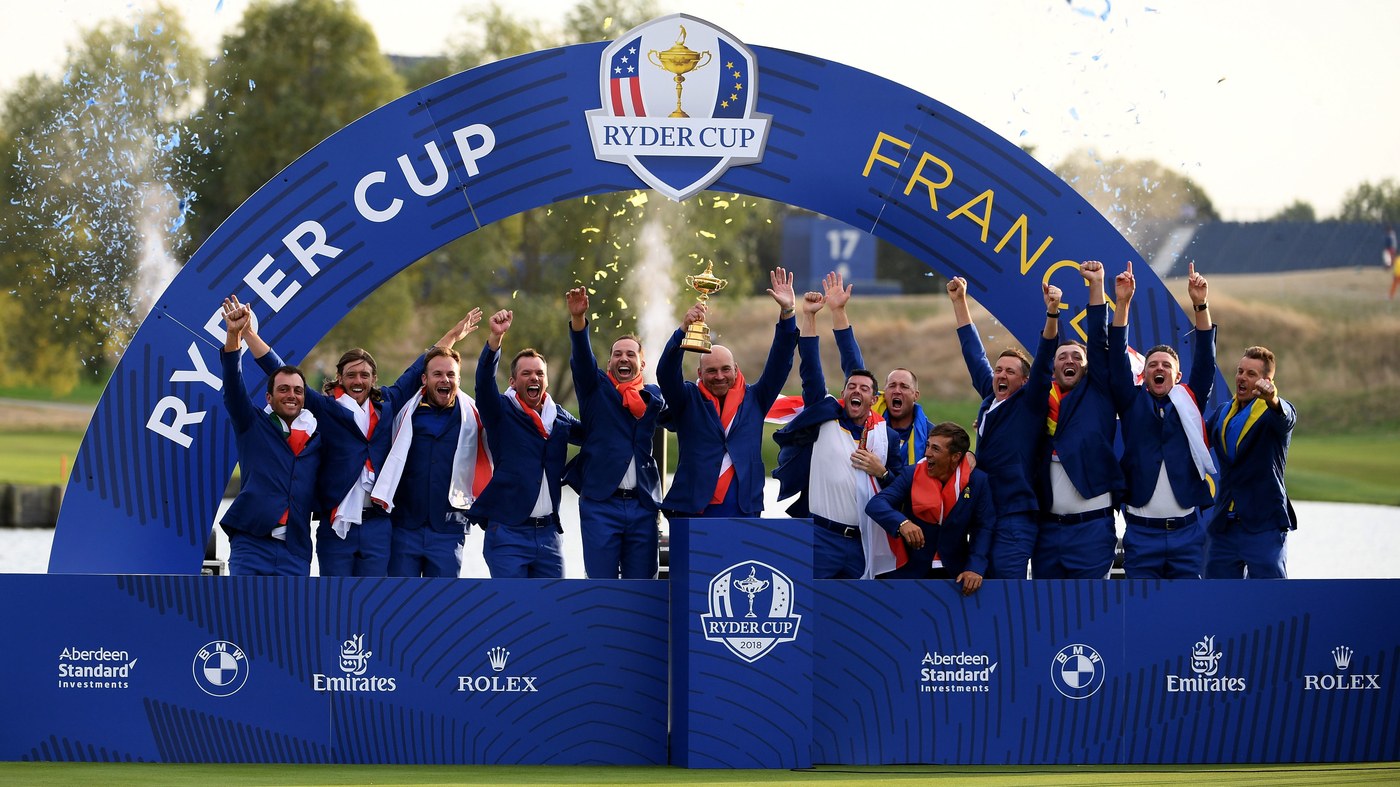By Shane Ryan
The 2020 Ryder Cup in Whistling Straits begins one year from today, and it’s a given truth that in the modern era, it’s never too early to jump aboard the runaway hype train. We’re too far away to know anything definitive beyond obvious truths such as “the three American major winners from 2019 have a very good shot to make the team,” and even the current team standings tell us very little … particularly in Europe, which gives almost no weight to 2019 events. (The points process on the European Tour started at last week’s BMW PGA Championship, meaning Danny Willett’s win gives him an edge in his quest to make good on a miserable 2016 experience, and Shane Lowry gets nothing for winning the Open Championship. Ouch!)
Yet though our knowledge base may be limited, why would that stop us from making bold predictions that could easily blow up in our faces? It’s always worked out extremely well for me. So let’s set some predictive land mines, and rev up the engines for the greatest event on the golf calendar.
1. The United States squad will place a huge emphasis on team unity … or at least it should.
Two of the last three Ryder Cups have ended in humiliation for the Americans, and I’m not just talking about the lopsided losses on the course. It’s been worse than mere defeat; in 2014 it was a team-wide rebellion against captain Tom Watson. In a vacuum, it would be easy to dismiss that as one hard-headed leader failing to gel with his team. But for four years, the American narrative was that this was a good thing, in the sense that it spurred change in the form of the infamous task force and woke them up to some truths about organization and continuity that the Europeans had learned decades earlier. Then, in Paris 2018, under a very steady and well-liked captain armed with the best-laid plans, humiliation struck again, with an alleged fight between Brooks Koepka and Dustin Johnson, a mini-rebellion from Patrick Reed and general discord leading to another blowout.

Andrew Redington/Getty Images
The 2018 U.S. Ryder Cup team during the opening ceremony at Le Golf National.
The Ryder Cup boils down to three days of actual golf, and it shouldn’t be hard to show a unified front, but it has been mission impossible for the Americans in the last two visits to Europe. Ahead of Whistling Straits, U.S. captain Steve Stricker will do everything he can to emphasize the collective and squash any resentments or outright beefs before they blow up in the team’s face.
2. The Reed-Spieth partnership is over.
If there’s one thing I agree with Reed about, in his comments to Karen Crouse after Paris, it’s that “the issue’s obviously with Jordan not wanting to play with me.” It was more than a little bizarre to see the break-up of such a successful tandem, and though we can’t peer inside Furyk’s brain, it’s hard to believe that he wanted to split them up … and we know Reed didn’t. Which leaves Spieth, who, if we judge by Reed’s lack of popularity among his peers, probably had his reasons. Rather than wildly speculate about the past, though, let’s wildly speculate about the future: This partnership isn’t coming back in Wisconsin, even if both make the team. That bridge has been burned.
3. The Moliwood partnership … is not over.
Look, I want to make sure I get at least one of these predictions right, and this one’s ironclad. I mean … look at these two:
The morning after the week before ?#TeamEurope #Moliwood pic.twitter.com/J5JunSS5Ee
— Ryder Cup Europe (@RyderCupEurope) October 1, 2018
4. There will be controversy about the fans at Whistling Straits.
More than 250,000 people attended the last American Ryder Cup in Minnesota, and when you have that many people in a tense venue where alcohol is flowing all day, there are going to be some ugly incidents. And it’s not any kind of commentary on the nature of American fans, or anything like that—it’s just math. The rotten one percent, or one-tenth of one percent, or whatever, are going to make their presence felt. Rory’s war with the crowd at Hazeltine National provides a blueprint for what we’ll see at Whistling Straits, except I suspect it might be worse four years later.

Keyur Khamar/PGA Tour
Whistling Straits is sure to have vocal pro-American crowds, just like at Hazeltine National in 2016.
5. The most toothless “story” will be Koepka and DJ.
Barring injury, these two will definitely both make the Ryder Cup (they’re top two in the standings even now), and they’ll face questions leading up to the event about their relationship, and whether they can function effectively as teammates after their reported dust-up in Paris. But it won’t amount to more than a weak puff of air—unlike Reed, these aren’t the kinds of guys to hold a grudge, and when they inevitably claim that the incident is behind them, it will be true, no matter how much anyone else wants to see controversy re-erupt.
6. Padraig Harrington will regret scaling down to three captain’s picks.
Considering that the four European captain’s picks in Paris finished with a 9-4-1 record and were absolutely critical to the victory, it’s mind-boggling that Team Europe has opted to scale back to three captain’s picks and nine automatic qualifying spots for 2020. Read Harrington’s quote:
“Having said that, I am pleased that the Tournament Committee agreed to the change of wildcard numbers. I have spoken to a number of people regarding the ninth player automatically qualifying for the team, and in my experience, a player is more comfortable when he has qualified, hence my reasoning behind this change.”
Um … what? Did the captain’s picks in Paris look uncomfortable? Did Thomas Pieters, when he went 4-1-0 in Hazeltine, compared to ninth qualifier Matthew Fitzpatrick (0-2)? Sure, a captain’s pick might perform badly, but there’s no reason for any of them to feel uncomfortable, and recent history doesn’t back it up. Harrington will rue this puzzling decision.

Andrew Redington/Getty Images
7. Europe may have a veteran problem.
I thought that in 2018 the European vets would be a little too old to lead a Ryder Cup team, especially against the relatively young Americans. That turned out to be wrong—emphatically so—but two years later, this potential problem hasn’t gone away. Stalwarts like Sergio Garcia, Ian Poulter, Henrik Stenson and Paul Casey will be 40, 44, 44 and 43, respectively. All of them are in decent-to-good form right now, but with Harrington’s reduced picks, they can’t all get a captain’s pass as they did in 2018. And if those vets can’t make the team on form, it could overload Team Europe with rookies as we saw at Hazeltine, when the four newcomers appeared overwhelmed and went 1-8 between them (to be fair, rookies Rafa Cabrera-Bello and Pieters were excellent). The Moliwood duo and McIlroy are certainly ready to lead, but unless things work out perfectly for Harrington with his longtime vets, the U.S. will have an experience advantage at home.
8. The Americans will win.
Here’s the thing: Now that the Americans have figured out the whole “continuity” and “organization” stuff post-Gleneagles 2014, and are a least philosophically on par with the Europeans, it’s going to be very hard for either team to win on the road. The disadvantage of playing away from home is just too big, period. If you look at the patterns since 1995, there’s a perfect rhythm: The Europeans wins every time at home, and every other time in the U.S. By that standard, it’s their turn to win in Wisconsin. But times have changed, and unlike past home Ryder Cups, the Americans will come in with a good plan, a talented squad focused on at least the appearance of unity led by a beloved native son as captain, a favorable course likely bereft of all but token rough, and a rabid home crowd. (There’s also this: If not for a historic comeback by the Europeans at Medinah, we’d be looking at six straight home victories dating to 2006.)
Having a system in place matters, even if that system occasionally fails under difficult conditions away from home. At Whistling Straits, it won’t fail, and the Yanks will hold serve.









